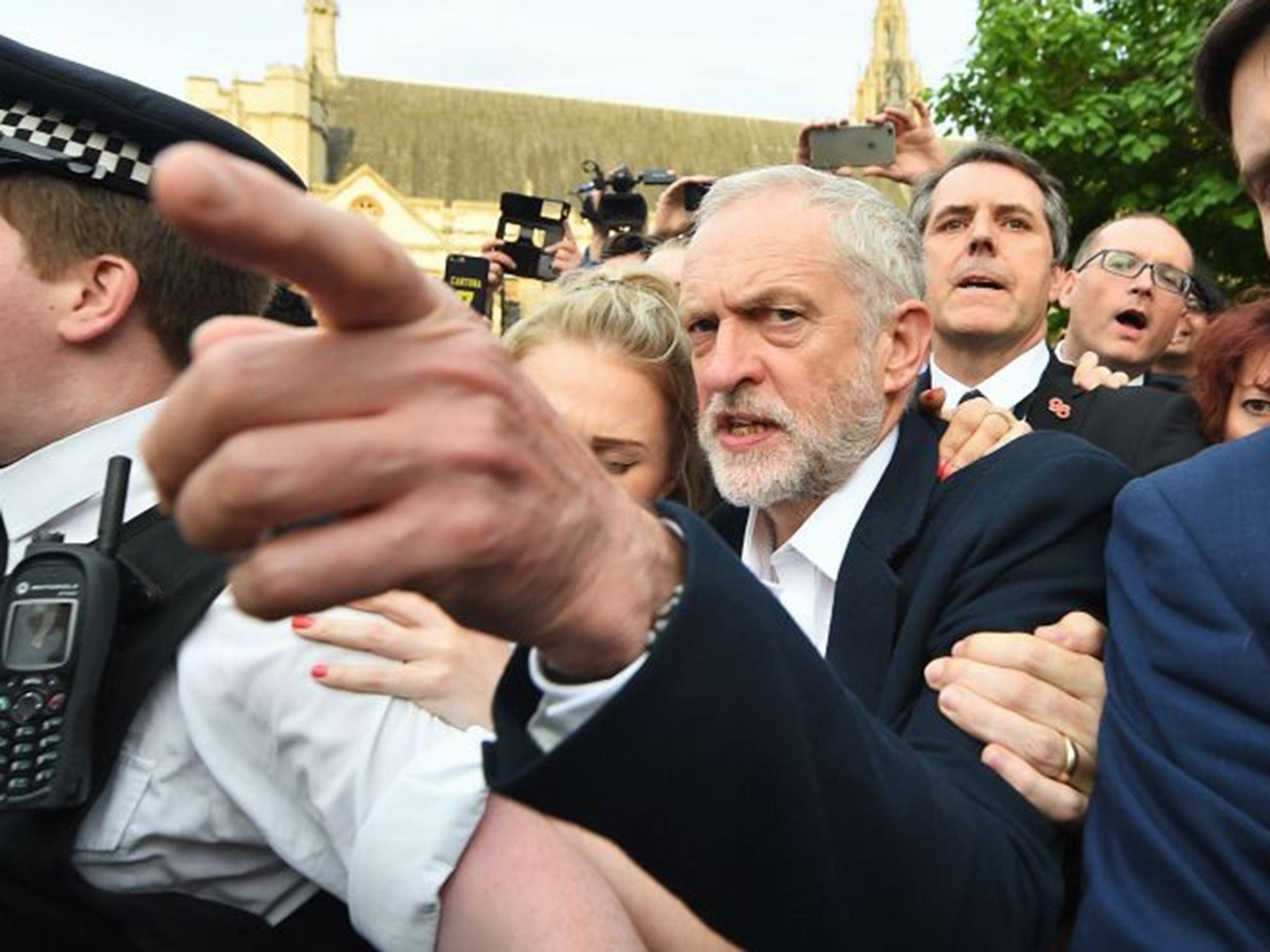Labour officials receive legal advice on whether Jeremy Corbyn could stand for leadership re-election
If Corbyn loses the upcoming vote of no confidence, he may have to find 50 MP or MEPs prepared to back his continued leadership

Your support helps us to tell the story
From reproductive rights to climate change to Big Tech, The Independent is on the ground when the story is developing. Whether it's investigating the financials of Elon Musk's pro-Trump PAC or producing our latest documentary, 'The A Word', which shines a light on the American women fighting for reproductive rights, we know how important it is to parse out the facts from the messaging.
At such a critical moment in US history, we need reporters on the ground. Your donation allows us to keep sending journalists to speak to both sides of the story.
The Independent is trusted by Americans across the entire political spectrum. And unlike many other quality news outlets, we choose not to lock Americans out of our reporting and analysis with paywalls. We believe quality journalism should be available to everyone, paid for by those who can afford it.
Your support makes all the difference.Labour officials have consulted lawyers on whether Jeremy Corbyn has an automatic right to stand for re-election if he is faced with a leadership challenge.
The Labour leader has defiantly refused to resign despite losing the backing of most Labour MPs, and having more than 50 of his front appointees resign in protest as his failures as a leader.
Labour MPs are holding a secret ballot today to test whether they have confidence in their leader.
His aides have privately admitted that they expect him to lose the confidence vote, but say that it is “irrelevant” and “a distraction” and accuse media commentators of being “Westminster-centric” by focusing on what MPs are saying rather than Mr Corbyn’s support in the wider party. They say that since Mr Corbyn was elected by an overwhelming vote of party members and supporters a year ago, only the party and its supporters can remove him.
Diane Abbot, one of Mr Corbyn’s leading allies, told the BBC Radio 4’s Today programme this morning: “I think a leadership election is inevitable. I think there is a very good chance Jeremy will win a leadership election. Then I believe the party will want MPs to rally behind the leader.”
Asked by her interviewer, Sarah Montague, how Labour might fare in a general election under Mr Corbyn’s leadership, she replied: “I can only repeat, you’re being very Westminster-centric. This is about the party.”
But under one reading of Labour’s ambiguously worded rule book, Mr Corbyn might not be able to compete in a leadership election, because he might be unable to get his name on the ballot paper.
The party’s general secretary, Iain McNicol, has privately sought legal advice on how the rule should be interpreted if – as seems increasingly likely – Mr Corbyn is challenged and insists on fighting to keep his job.
Rule 4.2.ii of the Labour party rule book says that when an incumbent party leader faces a challenge “any nomination must be supported by 20 per cent of the Commons members of the PLP. Nominations not attaining this threshold shall be null and void.”
The Parliamentary Labour Party (PLP) is made up of 230 MPs and 20 MEPs, which means that a challenger will have to collect at least 50 signatures on his or her nomination papers.
But does the phrase "any nomination" mean apply to the incumbent leader as well as to any challenger? If it does, Mr Corbyn would have to find 50 MP or MEPs prepared to back his continued leadership – a number he would find it almost impossible to reach.
In 2015, when the rules were different because the former leader, Ed Miliband, had quit, Mr Corbyn struggled to get the 35 names he needed to get his name on the ballot paper. He achieved that only because a number of MPs – such as Labour’s former deputy leader, Margaret Beckett and the late Jo Cox – signed his nomination papers purely to give him a chance to participate in the contest, while making it clear that they had no intention of voting for him and did not expect him to win. Four of the 36 who nominated Mr Corbyn are no longer in the Commons.
Meanwhile the challenge for Westminster watchers is keeping up with the stream of resignations from Mr Corbyn’s front bench. This morning, Andrew Slaughter, Barbara Keeley, Andrew Gwynne and Alan Whitehead resigned, bringing the total to 54.
Join our commenting forum
Join thought-provoking conversations, follow other Independent readers and see their replies
Comments